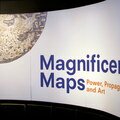There's a moment in the first Ace Ventura (Pet Detective) film when Jim Carey's character realises that the male sports star he's been searching for is actually the same person as the female police chief he's been battling with.
With disbelief, he cries to himself:
Ray Finkle is Lois Einhorn. Lois Einhorn is Ray Finkle. Oh my God.
The realisation makes him sick.
I've just had a similar experience.
For reading Ian Birrell's account of his role on David Cameron's speechwriting team, he asserts
So what is the big society? First of all, I must confess that I am no fan of the slightly fuzzy title... But it is better than its predecessor, the clunky "post-bureaucratic age".
That is, the Big Society is the post-bureaucratic age. The post-bureaucratic age is the Big Society.
But such things are totally different in conception.
One is a (seeming) positive. The other is a negative - it defines itself by what it isn't.
One relates to community and how everyone should take a role in it, irrespective of the state. The other starts with the premise of a state and the officials it contains, and moves away from it.
One is expansive in its scope and looks to what the future will be. The other narrows and limits in its scope and ties itself irrevocably to a past.
If - and it's a big if - the Big Society is the post-bureaucratic age, then Cameron's in more trouble with the idea than I thought. Because previously, I'd assumed the vision was sound and the details were lacking. This makes me think that the idea may be a bit lacking as well.






No Comments
Leave a comment